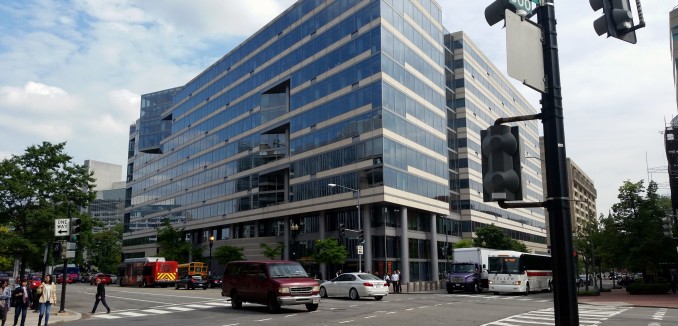Iran’s failure to bring its money-laundering and terror finance laws into compliance with international standards has discouraged foreign banks from doing business with the country, according to a senior International Monetary Fund official.
David Lipton, a deputy of the IMF’s Managing Director Christine Lagarde, told Bloomberg News while in Tehran on Tuesday that “the best thing the government can do, and the banks can do, is to bring those standards up to international levels and try to reassure foreign partners, banks and otherwise that Iran’s banks are safe to deal with.” He added that “lenders here have to acknowledge that foreign banks will make decisions based on their assessments of risk management.”
Lipton is the first senior IMF official to visit Tehran since the 1979 Islamic revolution, according Iran’s central bank. His warning about Iran’s banking system echoes that of other industry and independent experts.
Stuart Levey, currently the chief legal officer of the London-based bank HSBC, wrote last week in The Wall Street Journal that Iran has not changed the behavior involving money laundering and terror finance that first prompted the United States, European Union, and United Nations to sanction it a decade ago. He added that HSBC is aware of the country’s “financial-crime risks and the underlying conduct,” and therefore “has no intention of doing any new business involving Iran.” Levey, who previously served as President Barack Obama’s undersecretary of the treasury for terrorism and financial intelligence, also questioned why Secretary of State John Kerry was encouraging European banks to assume the risk of working with Iran.
Mark Dubowitz, the executive director of the Foundation for Defense of Democracies, observed last month that organizations like the Financial Action Task Force [FATF], which “is an intergovernmental agency that regulates markets and protects financial integrity” has been warning for years that “Iran, again, represents a severe illicit financial threat.”
The editors of The New York Times, who supported the nuclear deal with Iran, also noted last month:
Before the nuclear deal, Iran was largely isolated from the international banking system. It has not kept up with strict new rules to prevent money-laundering and terrorist financing. Experts say Iranian banks are badly run, politicized and lack transparency — warning signs for risk-averse foreign banks. Iran’s warlike behavior in the region — supporting President Bashar al-Assad in Syria, arming Hezbollah and testing missiles — further discourages investment. As President Obama said recently, “Businesses want to go where they feel safe, where they don’t see massive controversy, where they can be confident that transactions are going to operate normally.”
Iranian officials have complained that country hasn’t seen the promised economic benefits from the nuclear deal and have threatened to abrogate it.
Valyollah Seif, the governor of Iran’s central bank, warned last month that the nuclear deal would “break up” if the U.S. didn’t give Iran greater access to its financial system. However, Seif himself acknowledged last year that it was Iran’s practices that prevented it from integrating into the international financial system.
[Photo: soccerdhg / Flickr ]




